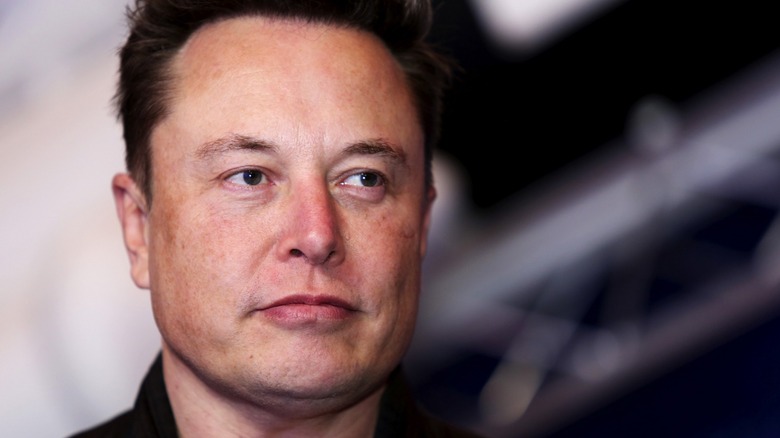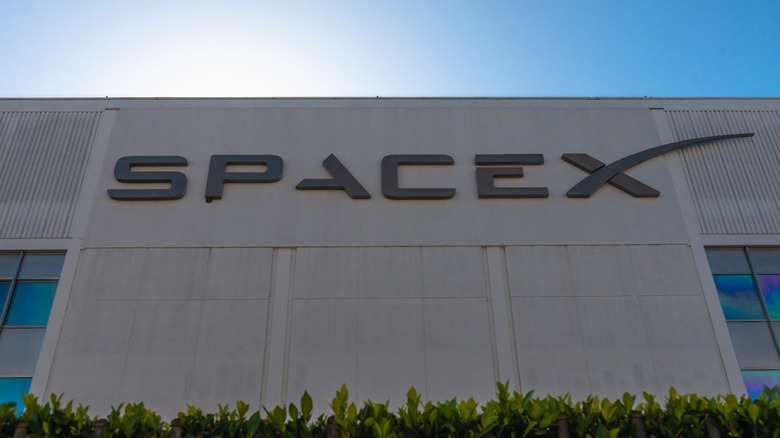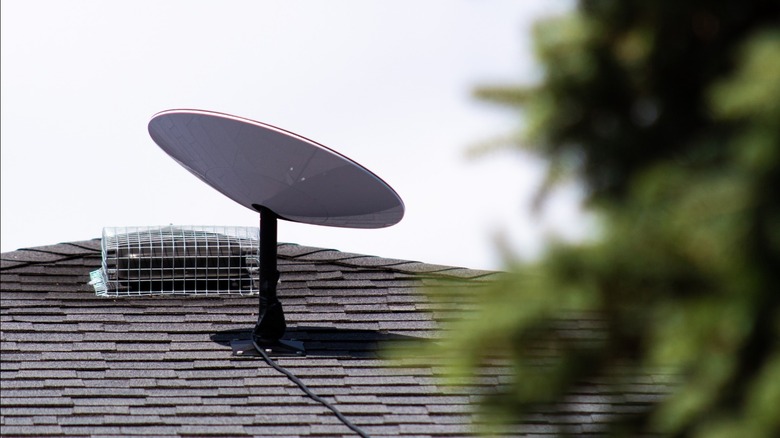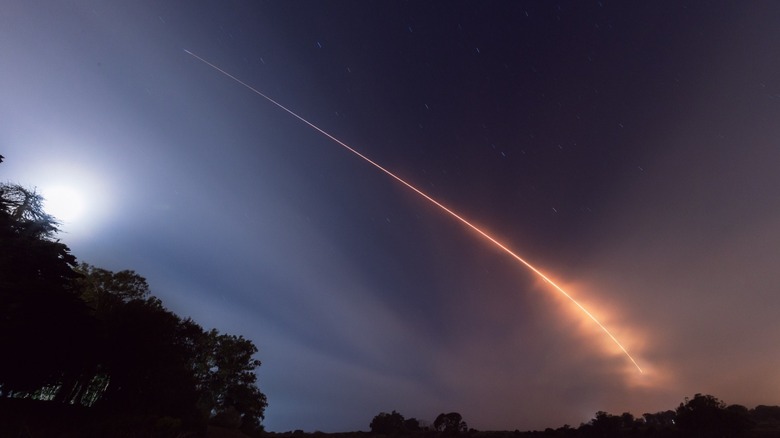How Elon Musk Answered Ukraine's Call For Help
News has been coming in at a very rapid pace during the current crisis in Ukraine, but one story that managed to cut through the constant stream of headlines involved Elon Musk and his satellite internet service Starlink. Maintaining consistent internet access has to be a major concern for Ukraine's government and people as Russia continues its invasion, because if the internet goes out, organizing a resistance becomes all the more difficult.
Perhaps looking to give Ukraine a fallback option in the event that Russia manages to take out the country's more traditional internet options, the Vice Prime Minister of Ukraine, Mykhailo Fedorov – who also serves as the country's Minister of Digital Transformation – reached out to Musk to ask him to activate Starlink service in the country. What played out over the next 48 hours or so happened with impressive speed, but is getting Ukraine access to Starlink as easy as getting Elon Musk's attention on Twitter? Moreover, is Starlink service a suitable fallback in areas that may see heavy fighting in the coming days and weeks?
How Elon Musk helped Ukraine get up and running with Starlink
On Saturday, February 26th, Fedorov published a tweet directed to SpaceX and Tesla CEO Elon Musk. "@elonmusk, while you try to colonize Mars – Russia try to occupy Ukraine!" the tweet read. "While your rockets successfully land from space – Russian rockets attack Ukrainian civil people! We ask you to provide Ukraine with Starlink stations and to address sane Russians to stand."
About 10 hours later, Musk replied by saying that Starlink service had been activated in Ukraine and that more Starlink terminals were on route to the country. On Monday, Fedorov shared a picture to Twitter that showed a truckload of Starlink terminals that had arrived in the country. "Starlink – here. Thanks, @elonmusk," Fedorov said, to which Musk simply replied, "You are most welcome."
To many of us watching from the sidelines, the turnaround time between Fedorov's original request and the arrival of those Starlink terminals seemed impressively fast. We're not privy to the logistics it took to get these terminals into Ukraine roughly 48 hours after they were requested, and we don't know where in Ukraine they're destined for. It seems likely that most of them will go to bolster internet service in Ukraine's cities, but we don't know and will likely never know specifics given that Ukrainian officials probably want to keep those details as secret as possible.
Starlink could help immensely, but there are no guarantees
Musk's swiftness in getting Starlink service active in Ukraine and sending a truckload of terminals to the country is no doubt outstanding, and in doing so, he's accelerated the timeline for Starlink's rollout in Ukraine significantly. Fortune reports that Starlink wasn't scheduled to start launching in Ukraine until sometime in 2023, which suggests that the infrastructure isn't there to support widespread Starlink connectivity yet.
Indeed, The Atlantic notes that the terminals Ukraine received not only have to find their way into the hands of users, but they also need to be in range of Starlink's ground stations to work. Since Ukraine wasn't slated to receive Starlink service until next year, there are no ground stations in the country to connect to those terminals. There is some good news, though, as Starlink coverage tracker Mike Puchol told The Atlantic that the ground stations in surrounding countries are close enough to "provide service to the whole of Ukraine without issues."
Getting service up and running is only one part of the equation, though, because once Starlink is getting people online in Ukraine, those terminals have to remain intact. That could prove to be an issue, particularly in cities where buildings could block views of the sky. Speaking to Reuters, satellite communications consultant Tim Farrar notes that terminals will have to be placed on top of those buildings in order to provide a stable connection to users, which could make them targets for Russian air attacks.
Lots of unknowns for Starlink and Ukraine on the road ahead
So, despite the early launch, there appears to be enough infrastructure surrounding Ukraine to make this work for now. Musk's decision to turn on Starlink service in Ukraine and ship out more terminals will likely help the internet situation in the country to some degree, but there are a lot of unknowns regarding just how much it'll help.
Judging by the reactions from some of the experts in the realm of satellite internet, Starlink may not work as a full-blown alternative to traditional internet services in the event those go down — Farrar for instance, told Reuters that Starlink "is not going to be something that can offer a replacement for terrestrial internet on a large scale." Still, it may still help pockets of Ukranians get online to stay up-to-date on resistance efforts and in communication with loved ones in the days and weeks ahead. That certainly counts for something, as does Musk's quick response to a Ukrainian government in need.



